Herb Alpert is a music legend.
As leader and trumpeter for Herb Alpert & the Tijuana Brass, he had a string of hit songs in the 1960’s including “The Lonely Bull”, “A Taste of Honey”, “Spanish Flea”, “Casino Royale”, and “This Guy’s in Love with You”. Famously, in 1966 the band outsold The Beatles by a ratio of two to one. Musical success continued, including Alpert’s 1979 instrumental recording “Rise” which hit Number One in the charts.
Along the way, Alpert co-founded A&M Records with Jerry Moss – the “A” is for Alpert, and the “M” is for Moss. In addition to Herb Alpert & The Tijuana Brass, A&M artists included The Carpenters, Cat Stevens, the Police, and Sergio Mendes & Brasil ’66, whose early albums for the label were produced by Alpert and Moss. Alpert married Brasil ’66 singer Lani Hall in 1973.
Finally, The Herb Alpert Foundation was created in the 1980’s, and has provided millions of dollars to support youth and arts education in California and beyond.
This interview was for a preview article for noozhawk.com for the 2/28/20 concert by Herb Alpert and Lani Hall at the Granda Theatre in Santa Barbara. It was done by phone on 1/13/20. (Dewey Nicks photo)
Jeff Moehlis: What can people look forward to at your upcoming concert?
Herb Alpert: Well, we’ve been doing this for the last 13 years with the same group. We’ve really refined it. It’s a fun show. It’s musical, it’s honest, it’s very authentic. There a Tijuana Brass medley, there’s a Brazil 66 medley in it, but surrounding it is just good songs. It’s a little different each night. It’s very loose. It includes the audience – they get to participate in it. I don’t think anyone will be disappointed.
JM: Did you ever perform in Santa Barbara back in the ’60’s, when you were touring?
HA: [long pause] I remember going to the Granada Theatre as a movie theater, if that’ll help you [laughs].
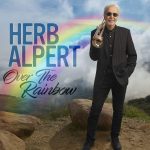
JM: You’ve recorded many albums over the years, and you have a new one which just came out a few months ago, Over the Rainbow. To you, what’s special about that album, and how do you feel it fits in with your other recordings?
HA: I don’t know if I could really tell you what’s special about it from my point of view, because every album I do I think is special. I mean, I wouldn’t release it unless I thought it was special, because if I don’t think it’s special, why should anyone else think it’s special? [laughs] It’s just a collection of songs that I enjoy playing. I always felt that if I play a song that’s familiar to others, and if I can do it in a way that they haven’t heard it quite that way before, that’s good. I always look for that. I always pick out melodies that I enjoy playing. I feel like if it’s fun for me to play, it’s going to be fun for some people to listen to.
JM: How did you develop the sound of Herb Alpert and the Tijuana Brass?
HA: It was a long and winding road, man. You know, I’ve been playing trumpet since I was 8, and once I started getting a good feeling of the instrument and was able to play melodies and have a good time playing, I started trying to play like some of my favorite musicians – Louis Armstrong and Miles Davis and Harry James – and I came to the conclusion, who wants to hear that? They’ve already done it, so why should I try to be a carbon copy of these people. So I was looking for my own voice, and I think that’s the most important element in the arts, to find your own way of doing something.
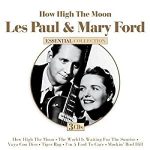
So I heard this record from way before your time, “How High the Moon”. Les Paul and Mary Ford had this record, in the 1950’s, where he layered his guitar. He did a take, and then he overdubbed his guitar on top of himself, and then did it a couple times, and came up with this sound. And out of curiosity, I tried doing that at my little studio at home. When I put the trumpet on top of my trumpet, the sound hit me like, “Bingo, that’s good!” [laughs] “That feels good.” So that was the genesis of the Tijuana Brass sound.
JM: I want to ask you about my favorite Tijuana Brass song, “Spanish Flea”. Can you tell me about recording that song, and how that came together?
HA: If you want to know the truth about that [laughs], it was written by Julius Wechter. He had this song – it was down on paper – and he showed me the lead sheet. The title of the song on his lead sheet was “Spanish Fly” [laughs]. I said, “No man. I love this song, but we can’t use that title.” [laughs]. “How about we call it ‘Spanish Flea'”? So that’s how that came about.
There’s something about that song. It’s an upbeat, happy song. It’s not the beat-of-the-week type of song. Until this day, I still like it. We play that in the medley, as well.

JM: Of course, that also got used in The Dating Game. How did that come about?
HA: It was fortuitous. They wanted to use that song, and obviously they had to get permission from the publisher and the writer. So that’s how that came about. That was just a lucky stroke. We didn’t solicit it.
JM: How did you get involved in the soundtrack for the James Bond movie Casino Royale?
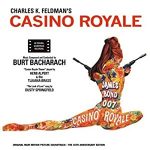
HA: Burt Bacharach is a friend of mine, and he was in London. He did the score for the movie, and he did the title song and he didn’t like the way it felt. He thought that he could improve on it. So he called me and sang me the song over the phone – he was in London – and it was kind of a time crunch. They needed it quickly. He asked me if I would put my sound on it, and when I heard it I really liked it. There was something very unusual about it. So he sent me the track that he did in London and I put the horns on. I added maybe a little percussion instrument to it. I sent the track back to him, and about two weeks later, man, there it was, the title song.
JM: Can you give me the backstory behind the Whipped Cream & Other Delights album cover?
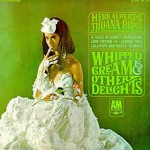
HA: I was in the studio recording Whipped Cream & Other Delights, and the art director Peter Whorf came in with this picture that he was crazy about. When I looked at it I didn’t even like it, because I thought it didn’t really represent what I was doing musically. That’s what I felt. He was really selling it, and my partner Jerry Moss loved the picture, and I just went along with it. It was Jerry Moss’ idea to name the album Whipped Cream & Other Delights, so I went along with him. And I’m glad we did, because as you know it turned into an iconic cover.
JM: In addition to your own music, you had great success with the A&M Records label. How do you think your approach to running a record label differed from your contemporaries?
HA: You mean back then? Because, you know, if we tried to start A&M in today’s environment, with what’s happening in the music industry, we wouldn’t have had a chance. It was all about timing. In short, I recorded for a major record company before A&M, and I wasn’t crazy about the way I was being treated. They treated me like a number. In fact, the recording facilities they had there were very ice cold. It was white on white on white, and very clinical.
I had an experience one afternoon where I recorded a song that I thought was pretty good when I was listening to the playback in the control room, and I wanted to hear a little bit more bass. So I went over to the board and lifted the bass, and the engineer slapped my hand, and he said, “Man, don’t ever touch this again.” I said, “What are you talking about?” He said, “This is a union board.” Anyways, I filed that feeling, and when we started A&M, I decided A&M is going to be all about the artist. It’s the artist first. That’s what a record company is all about. So that was basically the concept of the company. You know, treat people fairly. Treat people the way I would like to be treated myself. We were lucky. We picked some great artists, and, like I say, the timing was right.
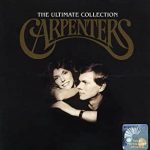
JM: Could I ask you about some of the A&M artists? First of all, The Carpenters, who were hugely successful. What’s your favorite memory of Karen Carpenter, or working with them?
HA: I signed them in 1969. I just heard a tape, and was very intrigued by the sound of her voice. So I met with them, and realized that they were making the type of music that they really loved. That music was coming out of them. They weren’t trying to make a hit record, they were just trying to make the music that they liked.
Richard was just like a student of recording. He knew about recording studios, what type of echo chambers to use, and microphones, etc. It was an interesting combination. Not the type of music I normally listen to, but I recognized there was something in her voice and his way of putting it together. There’s a certain authenticity that some artists have, that transcends genres. It doesn’t matter what type of music they’re making. If they’re doing it in a passionate and honest way, it resonates. And it’s very personal.
When I signed them and they had a record before “Close to You”, people in my own company were thinking, “Wow, man, why did you sign those kids? What are we going to do with those records?” At any rate, after I gave them “Close to You” to record, and it became Number One, all of a sudden people realized how important their artistry is, and to this day they’re still selling records. CDs. Or 0’s and 1’s. I’m not sure what they’re selling now. We’re selling streaming.
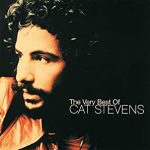
JM: One of my favorites from your label is Cat Stevens. What are some of your memories or impressions of what he was doing then?
HA: Actually, he’s one of my favorite artists as well. He’s just a really, really important artist. Him and his guitar, that’s all you really need, man. The guy is sensational, he’s passionate, he writes great songs. He’s a true artist, this kid. He’s not a kid anymore, but when we met him he was a kid. He’s special. He has that thing, whatever that thing is, that “it” thing, he has it.
JM: What about The Police? Any memories of when they were on your label?

HA: We signed them out of our office in London. I saw them for the first time at the Whisky a Go Go here in Los Angeles. I was thinking, “These three guys sound like there’s eight people playing.” Sting was jumping around the stage like he was on a pogo stick, but writing these great songs, “Roxanne” etc. You know, they just had some magic. The guys really made music that was different from what was happening on the radio. At A&M we weren’t looking for the beat-of-the-week, we were always looking for those artists that had something uniquely special to say, in their own way. The Police had it. You’ve got to give credit to Sting. He’s a brilliant writer, and they put some really great music together.
JM: I like obscure music as well. I know that Captain Beefheart recorded some stuff back in 1966 for A&M, which came out as The Legendary A&M Sessions. Were you involved in that at all?
HA: No, I wasn’t.
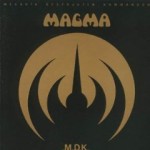
JM: Another obscurity – there’s a French band called Magma.
HA: I signed Magma.
JM: Cool! I absolutely love Magma.
HA: I’m glad you said that. Man, they were really… talk about different, man. They were speaking another language. Very unusual. I just couldn’t get the records to really take hold here in the States for some reason. But the guy Christian [Vander], the drummer, was brilliant. Yeah, I signed them in Paris.
JM: They came to LA about five years at The Echoplex. They’re still out there doing it.
HA: I thought that they were going to be a big home run, but maybe the PR was off, or maybe they didn’t have the right record at the right time. Here again, I’ll say that timing plays a huge part in an artist’s success.
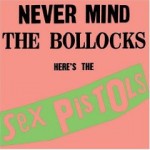
JM: I feel like I have to ask about The Sex Pistols. Why didn’t that work out with A&M?
HA: Well, I couldn’t give you the exact reason why it didn’t work out. But I’ll tell you, when they came on the lot, they were a pain in the ass for one. That energy was off. I didn’t want that type of energy on our label, or on our lot. Very negative. I know they had a point of view, and they were doing something that was kind of unique in its own way, but I like to be around positive energy, and that one didn’t work for me.
JM: Another punk rock band The Dickies released a couple of albums on A&M, so it’s not like you were against punk rock.
HA: Yeah, we had another section that was dedicated to that.
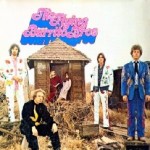
JM: One more artist that I really love is The Flying Burrito Brothers, whose first album was on A&M.
HA: Yeah, for some reason that one didn’t take. They had something special to offer, but maybe here again, the timing wasn’t right.
JM: Before the Tijuana Brass, you co-wrote Sam Cooke’s song “Wonderful World”. How did that song come together?
HA: It was kind of a long story. Lou Adler and I were partners, and we wrote this song that Sam liked. It had some feeling that Sam liked a lot. We adapted that song to “Wonderful World”, and then Sam wasn’t sure about the song, so he did a demo record of it, just to see if it would work. The company had that recording, and it was on the shelf. They didn’t release it. It was just something that Sam wanted to see if it was going to happen, if it was going to feel good for him. So it was just this demo recording, and the company put it on the shelf.
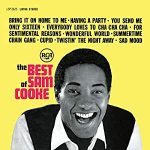
Then Sam left Keen Records and started recording for RCA Victor, and Sam had a nice little momentum going for himself on RCA. The company Keen Records who had a couple of cuts of Sam in their vault pulled out this “Wonderful World” record, which was a demo. They released it, and it became the biggest hit Sam ever had. The point of this story is, who knows what a hit record sounds like [laughs]? It was a huge record, and it was recorded as a demo.
JM: What advice would you give to an aspiring musician?
HA: That’s an easy one, man. You’ve got to be passionate about what you’re doing. If you’re not, if you’re doing it for other reasons, forget it. There’s too much competition out there. There’s some great, great, great musicians all around the world, and a lot of them don’t get a chance to be heard. So unless you’re really passionate about it, don’t even think about it.
And I think the main ingredient is to try to find your own voice, your own way of doing it. Don’t copy others. Try to find your uniqueness. Everyone is unique in their own way. You’ve got to work at that, though. You’ve got to put in the time, and above all be passionate about pursuing being a musician.
When I tell young musicians to be passionate, be excited about what you’re about to do that morning, and if you’re not excited about practicing or working on your artform, whatever it happens to be, forget it. Don’t do it. It’s tough out there.
JM: What’s in the works? Are you mostly focused on touring, or are you thinking new recordings?
HA: Oh man, I’m always thinking about recording. That’s what I love to do. I love to keep my brain occupied with the 0’s and 1’s. I have a set-up at home. And there’s a huge documentary coming out on me about 3 or 4 months from now. You know, I paint and sculpt. I’ve been doing that for 50 years. I have works in museums and galleries all over the world. I’m a right brain guy, and that’s what I love to do.
JM: Thanks for talking to me. I didn’t realize that you signed Magma, so that’s the surprise I got out of this.
HA: Yeah, I’m glad you mentioned them. You’re the first guy that have mentioned them in all the interviews that I’ve had. Good call – I’m glad you picked up on that.
JM: There’s quite a leap from The Carpenters to Magma, right?
HA: Well, look, here’s another leap. I signed Stan Getz, one of the great jazz musicians of all time. There’s all sorts of music that makes sense, that touches you. It’s all about finding music that touches you. Magma touched me, Stan Getz touched me, The Carpenters touched me.
There’s another story I’ll tell you some other time. We signed Waylon Jennings, and I was the first one to record Waylon.
JM: Well, music is music, right?
HA: Absolutely. Duke Ellington said, “Let’s get off that term ‘jazz’. Let’s just talk about music, what makes somebody feel good when they hear something.” A lot of times people think too hard about music, and they try to analyze it and “what’s it all about” and “what’s he trying to say?” I don’t think you can think about art that way. You have to just let your soul do the talking.

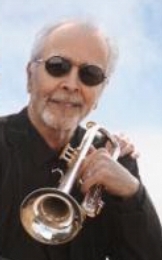
Great Interview with Herb Alpert..Make sure to attend his show with Lani Hall, they are truly American – Global musical treasures. Class Acts! thank You.
Terrific interview! Very illuminating and gently refreshing. Herb’s a great guy, a true artist with a genuine community spirit. Excellent, professional interview! Good work!